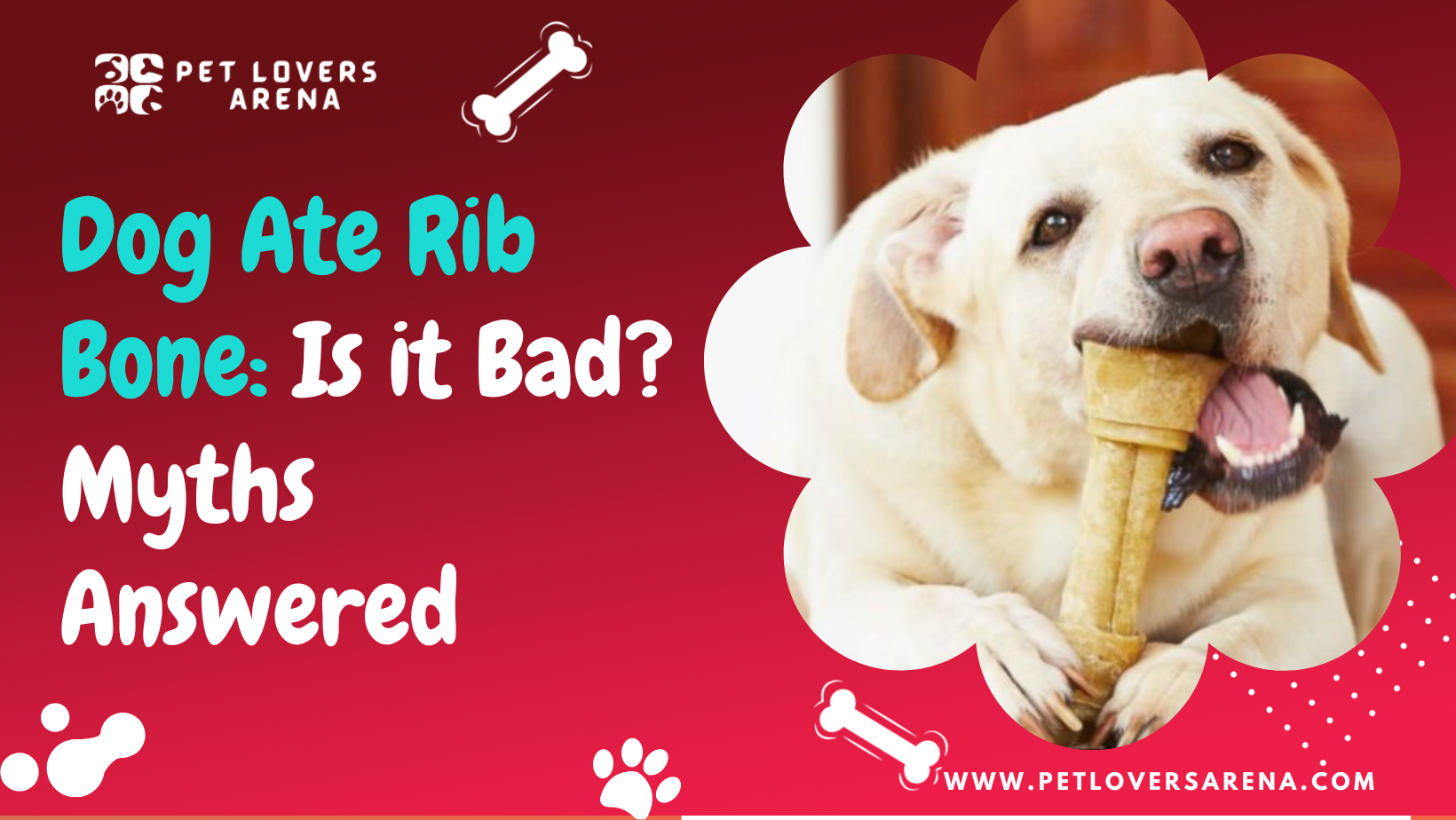Dogs love to chew on bones, and they can be a great source of entertainment and mental stimulation. However, many pet owners are concerned about whether bones are safe for their dogs to consume. One common bone that dogs often come across is a rib bone. While bones can provide important benefits for dogs, such as keeping their teeth clean and providing mental stimulation, giving dogs the wrong type of bones can be dangerous and even life-threatening.
Rib bones, particularly, can cause serious health problems, such as choking, blockages, and injury to the digestive system, if not consumed properly. It’s important to understand the dangers of giving rib bones to dogs, as well as safe alternatives that can provide similar benefits. In this article, we will examine whether a dog eating a rib bone is harmful and dispel some myths surrounding the topic.
Are Rib Bones Safe for Dogs to Eat?
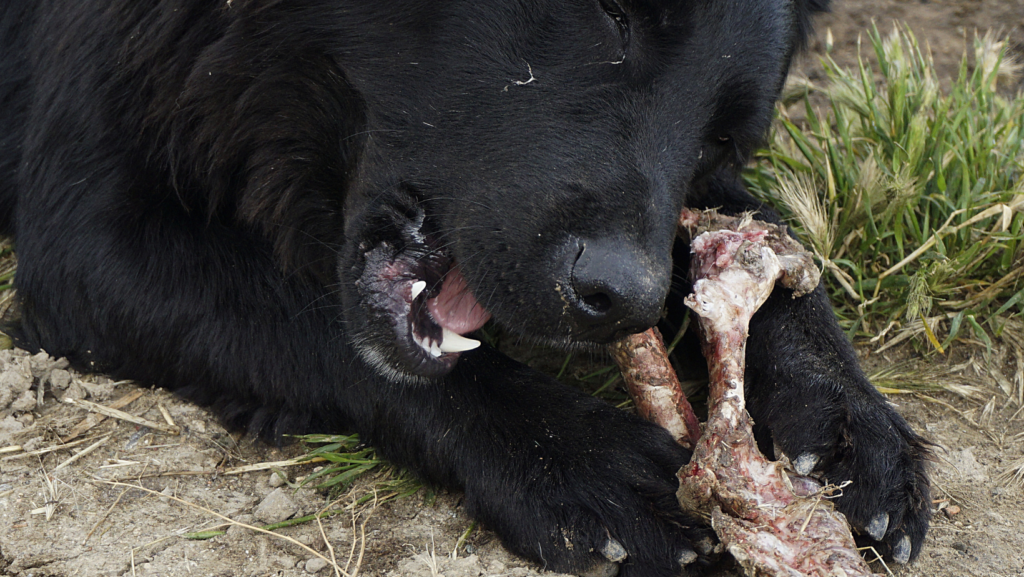
In general, rib bones can be safe for dogs to eat, but they can also be harmful in some cases.
The hardness of rib bones can cause them to splinter and create sharp pieces that can damage a dog’s digestive system and cause injury, such as blockages or tears in the intestines. Additionally, large rib bones can be difficult for dogs to digest, which can cause digestive problems and discomfort.
It’s also important to note that not all rib bones are safe for dogs. Cooked rib bones are more prone to splintering and should be avoided.
How Can I Determine if it is Safe for My Dog to Chew on a Rib Bone?
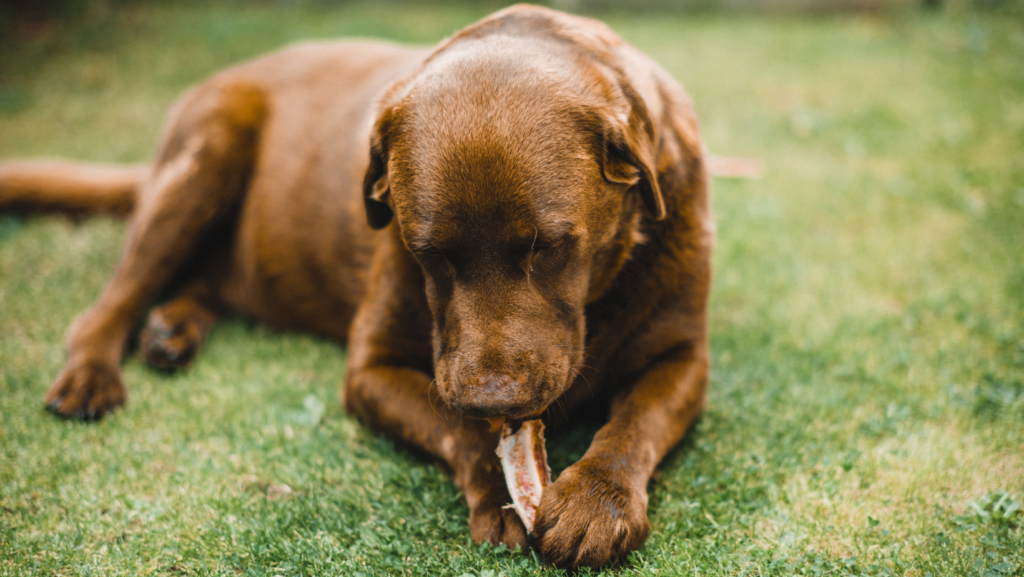
To determine if a rib bone is safe for your dog to chew on, consider the following factors:
- Dog’s size and breed: Smaller dogs and dogs with smaller jaws may not be able to handle the hardness of rib bones and may be at higher risk for choking or intestinal injury. Larger breeds with stronger jaws may be better suited for chewing on bones.
- Dog’s age: Younger and senior dogs may have a harder time chewing on bones and may be at higher risk for dental injuries.
- Dog’s health: Dogs with certain health conditions, such as dental problems, digestive issues, or weakened immune systems, may not be able to handle bones and may be at higher risk for injury or illness.
- Type of rib bone: Cooked rib bones are more prone to splintering and should be avoided. Raw bones from grass-fed or organic sources may be safer.
It’s always a good idea to consult with your veterinarian before giving your dog a rib bone to chew on. They can evaluate your dog’s needs and guide what types of bones are appropriate.
Dangers of Rib Bones
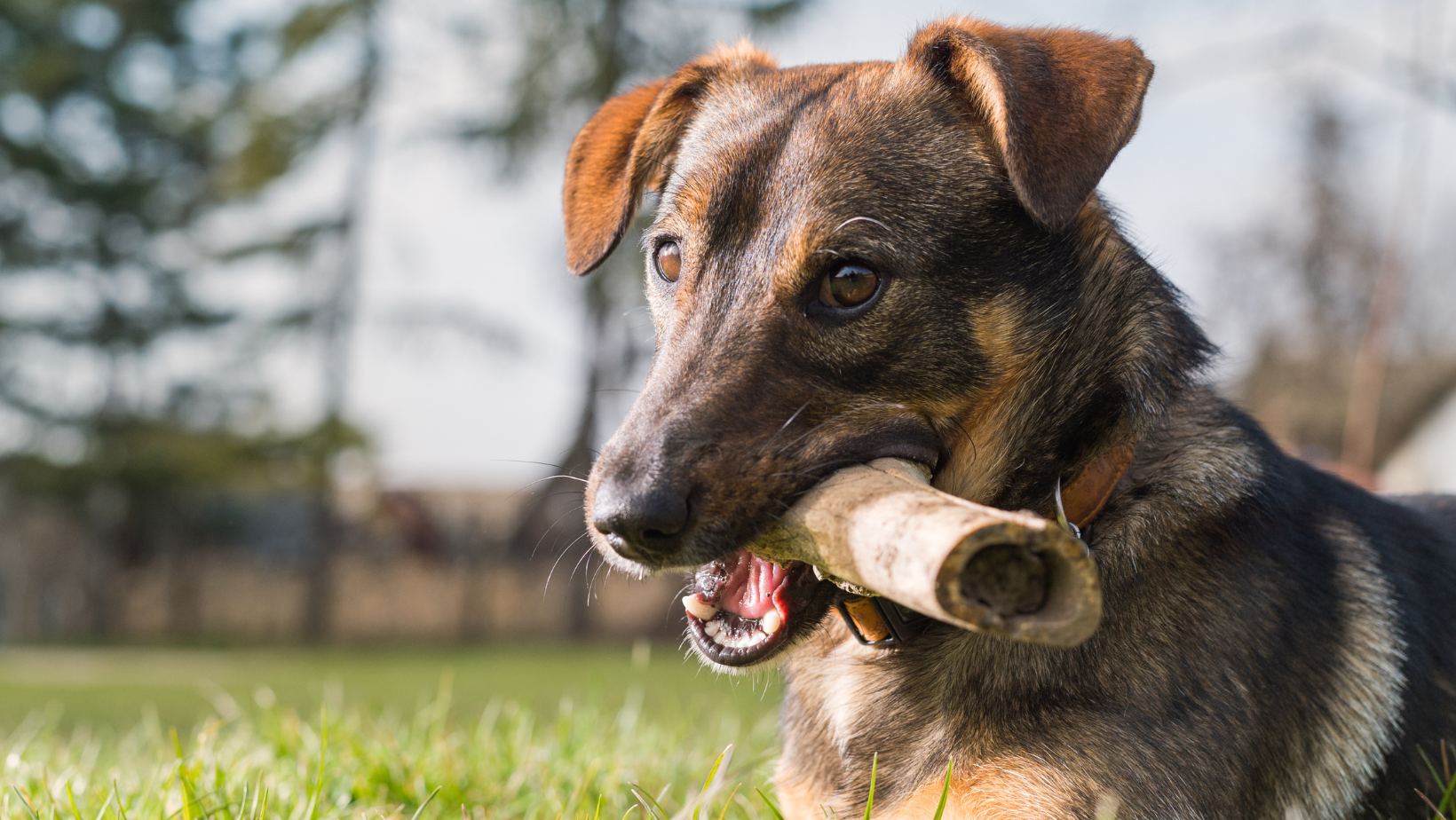
Giving rib bones to dogs can have several dangers, including:
- Choking: Dogs can choke on bones, especially if they are small or splinter into smaller pieces.
- Blockages: Rib bones can cause blockages in a dog’s digestive system, leading to abdominal pain, vomiting, and diarrhea. In severe cases, surgery may be required to remove the blockage.
- Fractures: Chewing on hard bones, such as rib bones, can cause fractures in a dog’s teeth.
- Intestinal injury: The hardness of rib bones can cause them to splinter, creating sharp pieces that can damage a dog’s digestive system and cause injury, such as tears in the intestines.
- Stomach upset: Large rib bones can be difficult for dogs to digest, leading to digestive upset, such as bloating, gas, and constipation.
Bones should be given in moderation and under close supervision to minimize the risks associated with bone consumption. Consult your veterinarian if you are concerned about your dog’s health after eating a rib bone or if they are experiencing any symptoms. They may recommend X-rays or other tests to check for blockages or injuries.
What Should I Do if My Dog Ate a Rib Bone?
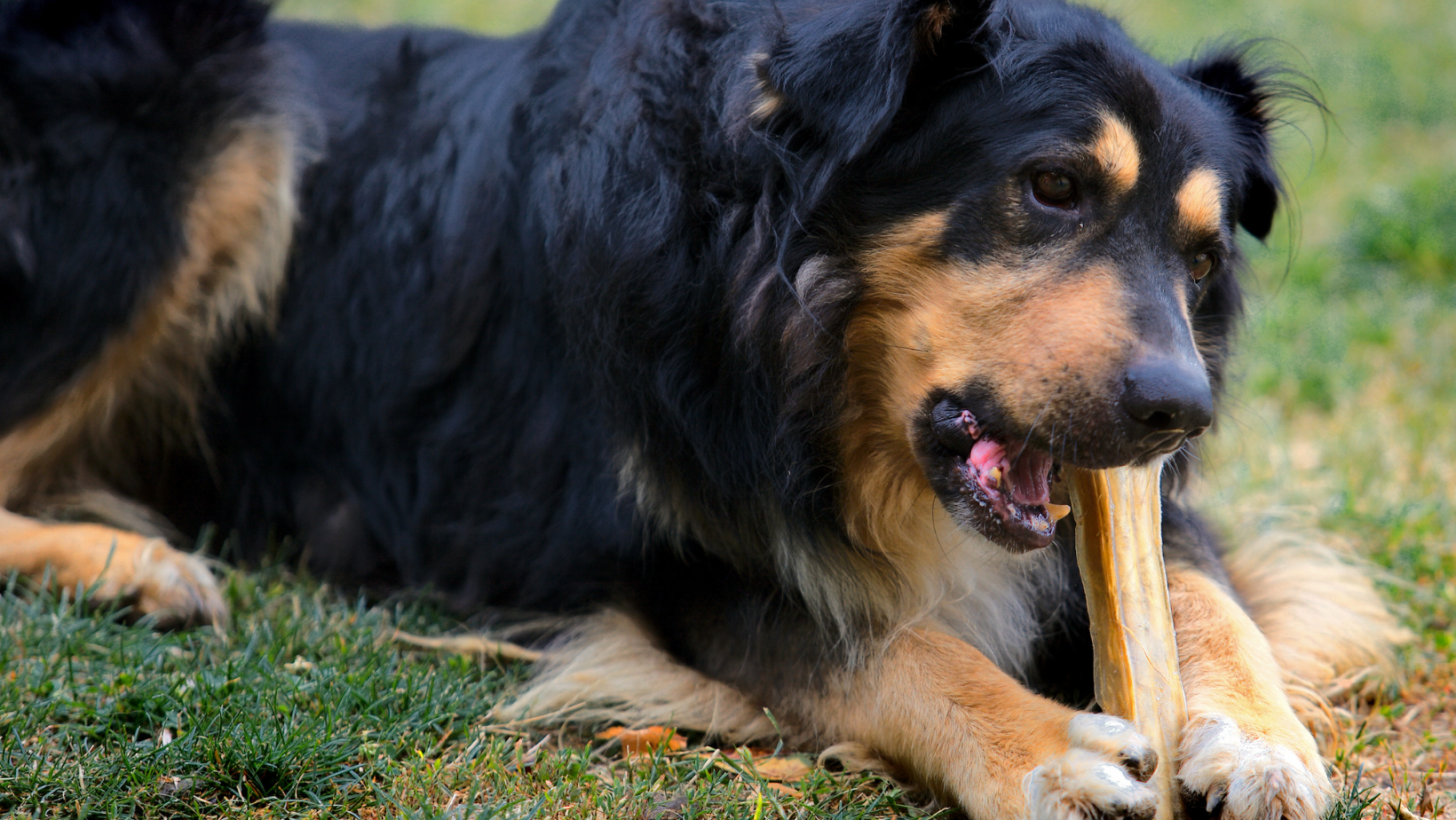
If your dog ate a rib bone, it’s important to monitor them for any signs of discomfort or illness. Here are some steps you can take:
- Watch for symptoms: Keep an eye out for symptoms such as vomiting, diarrhea, abdominal pain, loss of appetite, and lethargy. If you notice any of these symptoms, contact your veterinarian immediately.
- Remove access to bones: If you think your dog may have swallowed a splinter of the rib bone, remove all bones from your dog’s reach to prevent further damage.
- Offer water: Encourage your dog to drink plenty of water to help move the bone through its digestive system.
- Monitor your dog’s stools: Check your dog’s stools regularly for any signs of bone fragments. If you see any sharp or jagged pieces, contact your veterinarian.
Safe Alternatives to Rib Bones for Dogs
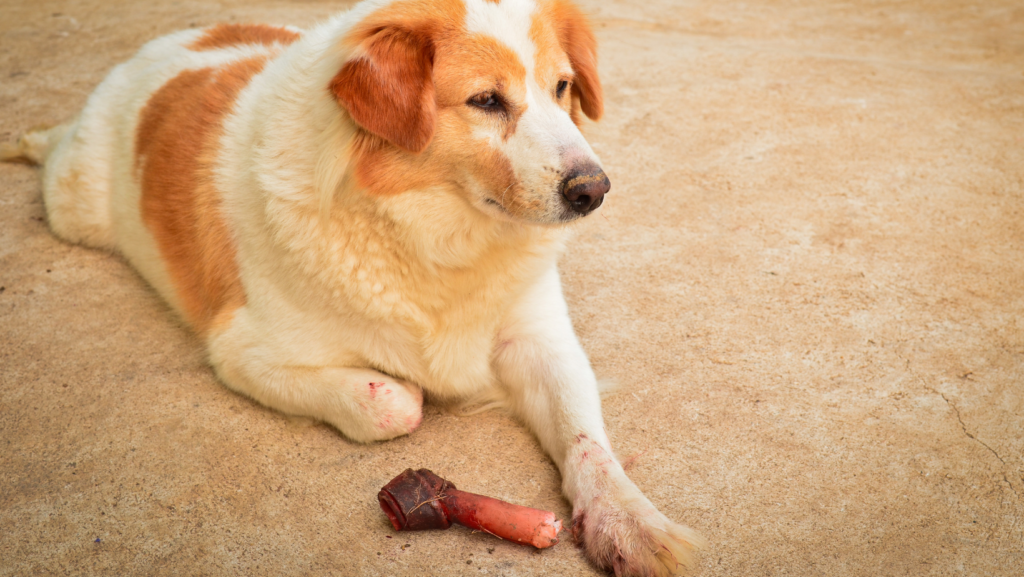
If you are looking for safe alternatives to rib bones for your dog, here are some options:
- Dental chews: Dental chews are designed to clean teeth and freshen breath and are made from safe materials for dogs to consume.
- Rawhide chews: Rawhide chews are made from the inner layer of a cow’s hide and are a popular option for dogs. However, it’s important to supervise your dog while chewing rawhide, as it can break off into small pieces that can be swallowed.
- Nylabone chews: Nylabone chews are made from a durable plastic material that can withstand heavy chewing. They come in a variety of shapes and sizes to accommodate different breeds and sizes of dogs.
- Kong toys: Kong toys are made from a durable rubber material and can be filled with treats or peanut butter for added stimulation. They come in a variety of shapes and sizes to accommodate different breeds and sizes of dogs.
- Meat-based chews: Meat-based chews, such as dried or jerky-style treats, can be a good alternative to bones for dogs. However, it’s important to choose treats that are made from high-quality ingredients and are free of preservatives and artificial flavors.
It’s always a good idea to supervise your dog while chewing on bones or any other chew toy. Consult your veterinarian if you have concerns about what types of chews or toys are appropriate for your dog.
Myths Surrounding Rib Bones for Dogs
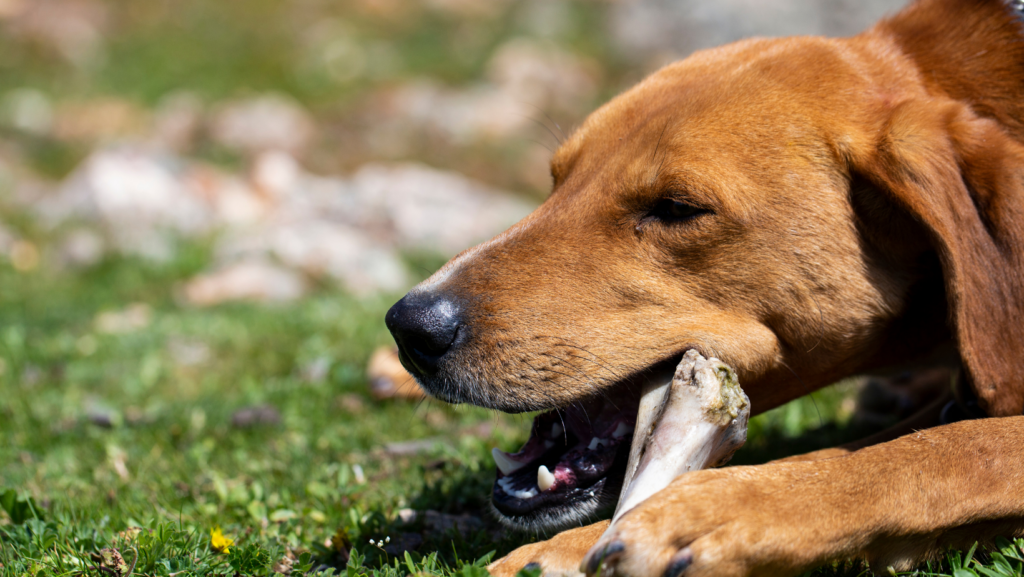
There are some myths connected with rib bones. Some believe that rib bones are safe to be given as food for dogs while others consider it as harmful. Here are some myths about rib bones:
Myth 1: All bones are safe for dogs to eat
This is not true. While bones can provide important nutritional benefits, such as calcium and phosphorus, some can be dangerous. Cooked bones, for example, are more likely to splinter and cause injury to a dog’s digestive system. Similarly, bones from larger animals, such as cows or pigs, can be too big for a dog to handle and cause blockages.
Myth 2: Rib bones are too hard for dogs to chew
Rib bones can be tough, but many dogs can handle them without problems. However, it is important to supervise your dog while chewing on bones, as they may break into smaller pieces that can be swallowed and cause an intestinal blockage. If you are concerned about the hardness of the rib bone, you can opt for bones from smaller animals, such as chicken or lamb.
Myth 3: Rib bones are bad for a dog’s teeth
On the contrary, chewing on bones can help to keep a dog’s teeth clean and strong. However, it is important to remember that not all bones are created equal. Hard bones, such as rib bones, can wear down a dog’s teeth over time, so it’s important to monitor your dog’s chewing habits and provide them with a balanced diet that includes appropriate dental care.
FAQ’s
Eating rib bones can be dangerous for dogs, as the bones can splinter and cause choking, blockages, digestive injury, and other health problems.
Yes, chewing on hard bones, such as rib bones, may cause fractures in a dog’s teeth.
Yes, rib bones can cause blockages in a dog’s digestive system, leading to abdominal pain, vomiting, and diarrhea. In severe cases, surgery may be required to remove the blockage.
No, cooked rib bones are more prone to splintering and are more dangerous for dogs to consume than raw bones.
Yes, dogs can choke on bones, especially if they are small or splinter into smaller pieces.
Final Words
In conclusion, rib bones can be a safe and healthy dog treat if given in moderation and under supervision. However, it is important to remember that not all bones are safe, and it is best to consult with your veterinarian before giving your dog any new bones to ensure they are appropriate for your pet. Your veterinarian can help determine if rib bones are appropriate for your dog based on size, age, and overall health.
Meet Madison Phillips, your compassionate guide to pet well-being. With experience from VCA Animal Hospitals and Laxton Vet Clinics Bellaire Inc. Madison honed her skills and embraced the balance of medical expertise and compassion, through her articles, she simplifies pet care, whether you’re a newbie or an experienced pet parent.

